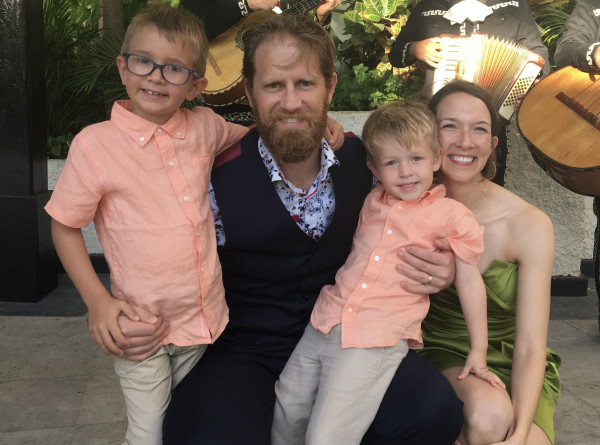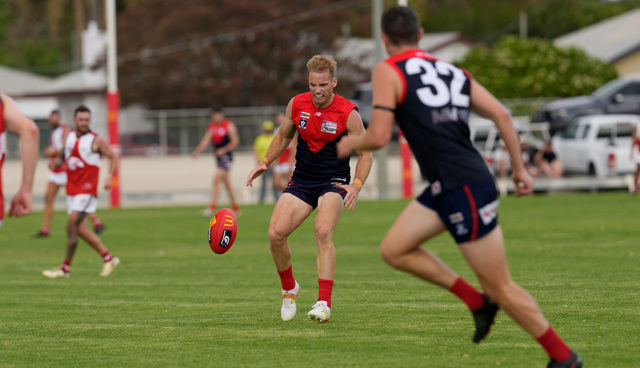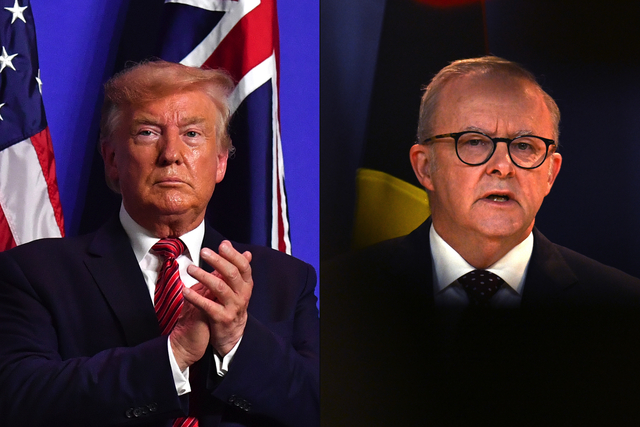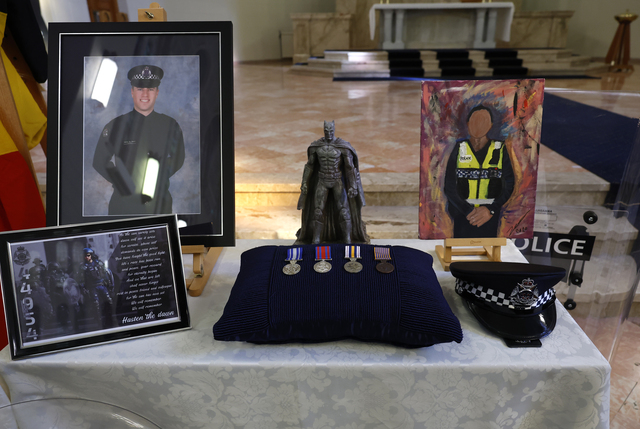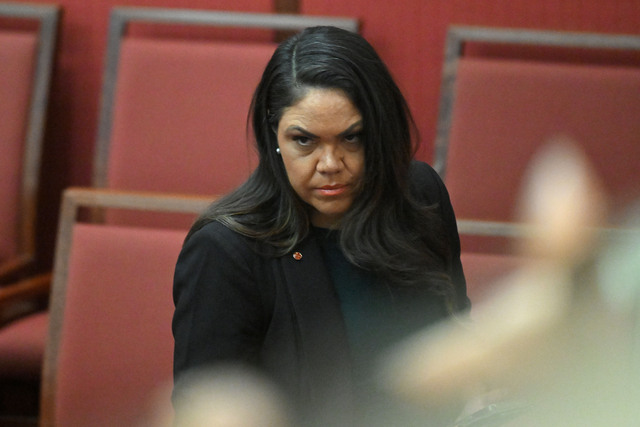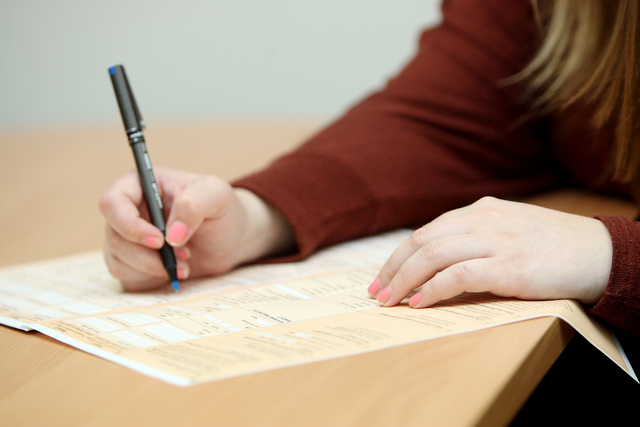DR Cameron Wolfe sees daily the death and devastation caused by COVID-19.
And the former Red Cliffs resident, who is now the COVID taskforce co-chair at Duke University Hospital in the United States, has a message for Sunraysia residents who remain complacent about the dangers of the virus.
“It’s an awful, awful disease,” Dr Wolfe said. “People keep thinking it’s like getting the flu but I can line the people up who will tell you that ‘Hell no, it is not like the flu’.
“The number of (COVID-positive patients) is probably horrifically more than what Australians have been told. In total we have surpassed 3000 admissions and nearly 400 deaths in our hospital alone.”
Dr Wolfe moved to the US in 2007 to study at Duke University, and decided to call the country home. He now has a wife, two children and a mortgage.
But the past year has proved like no other as he found himself on the front line of the coronavirus pandemic.
“In our peak, which was about a month ago, we had 210 people sick in the hospital at any one time.
“We are a large employer with 42,000 employees across the hospital and university and about 2000 employees have been sick.”
Having worked as a transplant physician, Dr Wolfe recently took on the role as COVID taskforce co-chair and is in charge of clinical management of patients.
“With the hospital and university based on the same campus, it’s a lot about keeping all of our students free from the illness the best that we can, which is easier said than done,” he said.
Part of that process includes the rollout of a vaccination program.
“We passed this week 15,000 staff who have been completely vaccinated and in total 100,000 doses were discharged,” he said. “That in itself is a big logistics challenge.”
While Dr Wolfe does feel proud of what Australia has “achieved”, he said it is now more important then ever that Australians get vaccinated when the opportunity becomes available.
“I really want to emphasise how lucky you guys are — it’s easy for me to say that when I have 400 dead people in my hospital over the space of a year — but when you get a chance to get the vaccine, you need to roll up your sleeve,” he said.
“The challenge for Australia is going to be a little different. People here want to get vaccinated because they have seen friends die and there is sadly no better wake-up call, but I think Australia has the risk the other way around.
“You run the risk of getting complacent because Australia has done such a good job of keeping this under control.
“People need to realise if they don’t do a good job as a community to get everyone vaccinated they will forever be stuck in this place, where you are at risk and you can’t isolate yourself forever.
“My main advice would be to have good faith that the vaccines are extraordinarily effective and this is your way out of it.”
Duke University is in North Carolina, a part of the US that Dr Wolfe said hadn’t been as “badly affected as others”.
“Unlike, say, New York, which was hit really hard, we had a few more months up our sleeve to get our processes and the way we laid out the hospital and operational systems in place,” he said.
“I think we were able to cope with such a big surge of patients better than most but it’s been tough.
“It’s disruptive, people are stressed, people can’t travel, people are nervous about getting sick themselves, the emergency room is always full, people are being cared for in corridors, in the emergency room. ICU are unable to do major surgery and a few other bits of care as there is no bed space guaranteed for them.
“When you see so many colleagues getting sick and a couple of our colleagues here dying, it’s a wake-up call.”
While there are restrictions in place, Dr Wolfe said many Americans still did not take them seriously, which was a flow-on effect from the attitude of former president Donald Trump.
“We have tried hard to be restrictive as a community on restaurants and bars and still have a curfew of 10pm across the state, but it is not well enforced,” he said.
“When Melbourne went back into lockdown, it was pretty rigid and when you see that states are closing the borders it’s legit closure, whereas here it’s been very soft.
“People don’t wear their masks frequently, people were still having Super Bowl parties, stuff like that which is not super-controlled.
“The problem from my point of view is that much of the message Donald Trump was trying to peddle was that this was under control and nothing to be afraid of.
“Instinctively, I think when you are potentially that profoundly narcissistic, you can’t see that some things are out of your control or that you are failing or that you are not perfect at doing something. And in a pandemic it is always going to be out of your control, which is to be expected.
“I think the response here was for largely half the community to pretend that this didn’t exist and it wasn’t a major problem and unfortunately that has set us back time and time again with bringing it under control.”
Dr Wolfe said it was only in the past few weeks that he had seen a dramatic shift in the attitude of people in the US.
“We have finally reached a point … in the United States where we have all known someone, whether that’s a family member or close friend, who have died.
“You can’t keep your head in the sand for that long, when it’s nearly half a million people, everyone has known someone that has died at this point, you can’t keep pretending it doesn’t exist.
“It’s certainly better — the last four weeks we have had a big decline in number of cases, partly because we are doing better at getting the vaccination into people and partly because people have realised it is not going away by itself and people need to take different actions to get it under control.”
Dr Wolfe understands better than most the daily dangers of being exposed to COVID-19 and has become extremely particular about his safety protocols.
“I am in my 40s, so I acknowledge that my chance of getting super-sick isn’t high. I have six people on ventilators in my ICU right now who are all younger than me, so if you want a wake-up call, it’s when you walk past someone in their 30s who is in intensive care and that are probably going to die.
“I have become pretty obsessive about hand washing, wearing masks and being sensitive to where people are around me and social distancing.
“We don’t go to restaurants anymore because I can’t control that space and am apprehensive about public transport as everyone is in your face.
“There have been lots of adjustments that we have made.”
Witnessing all that has occurred in the US, Dr Wolfe said he has felt “proud” watching how Australians had handled the pandemic.
“All the time I am thinking about whether to move back home and seeing what has happened in Australia makes me proud,” he said.
“To be honest, if you wanted to set some good examples of how to respond appropriately and how to operate as a community in its literal sense of the word, we can all grumble a little bit of the hardships we face in the middle of a pandemic.
“But at the end of the day, Australia has largely been in lock step with public health recommendations.
“You look around and you see one or two cases every day and that’s it, and yet I think you can see how close people were to dodging a bullet in July and August, when cases really surged in Melbourne.
“That is the warning for Australia — that you are only one bad error from having that problem pop up again.”

